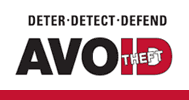Deter. Detect. Defend. Avoid Identity Theft - Video Transcript
May 2006
Nicole M. Robinson: Somebody took it away from me in the blink of an eye, in less than a month this woman had destroyed what I had worked for, for 15 years.
Andrew Sobanet: I mean, your credit score is basically all you have.
Holly Moskerintz: I was mugged, they got my information.
Andrew Sobanet: It can really negatively affect your life.
Holly Moskerintz: Then they went off with the information and basically became me.
Tom Karr: You feel this loss of control that someone’s out there pretending to be you and doing things in your name, that can come back to haunt you.
Judith Isaacs: Somebody was using my name and all my personal data.
Katherine Cole: They’d done it all.
Sandra Penaherrera: I just didn’t even know where to start.
Katherine Cole: They had a long record.
Judith Isaacs: It’s a terrible feeling.
Announcer V/O: Identity theft. It happens when your personal information is stolen and used without your knowledge. It’s a serious crime that can cost you time and money, ruin your credit, and destroy your good name.
Andrew Sobanet: When I was a victim of identity theft, my mail had been stolen.
Catherine Cole: I was shopping at a grocery store and someone took my wallet.
Vanessa Bustamante: I think I made a purchase and they stole all my debit card information.
Tom Karr: My briefcase had been tampered with. And when I looked in it, I saw that my passport and my driver's license, which I had in there, had been taken.
Betsy Broder: Identity theft happens when someone takes information about you and then uses it to commit fraud.
Tom Karr: Identity theft is very serious.
Betsy Broder: We know that identity fraud, in its various forms has affected 10 million people in any given year, and what that means in dollars, is that its loss to businesses of about $50 billion. On top of that, victims of identity theft have spent $5 billion trying to undo this harm.
Chairman Deborah Platt Majoras: Everyone needs to be conscious that identity theft is real.
Andrew Sobanet: When you get news that your identity has been potentially stolen, it’s very, it's sort of this open-ended problem that has occurred and you don't know what's going to come of it.
Chairman Deborah Platt Majoras: No one's immune, which isn't to say, that we're powerless. There's a lot we can do to deter, detect, and defend ourselves.
Holly Moskerintz: My identity was stolen when I was mugged. It is pretty traumatic, especially how it happened to me. They got my information, and it happened, then they went off with the information, and basically became me when they went to charging items in stores.
Betsy Broder: Identity thieves can only take advantage of you, if you give them information, or if they obtain information about you. So what you want to do is take steps to make it less likely that your information falls into the wrong hands. There are many ways that you can do that. And the first is to stop and look in your wallet. What are you carrying around? And if you lose your wallet, are you giving somebody else an opportunity to commit identity theft? So, avoid carrying around any identification that has your Social Security number on it, in your wallet. Because that can be used very easily and efficiently by identity thieves.
Nicole M. Robinson: They could have your name, they could have your birthday, but if they don't have your Social Security number, they're not going to get very far. But, all they really need is a Social Security number, and they can misspell your name and still get credit.
Holly Moskerintz: The only place that Social Security card number should be is in your head, and protected somewhere at home where you keep your other valuables.
Betsy Broder: And if someone asks you to provide a Social Security number, ask them why they need it. How they're going to keep it? How they're going to safeguard it? Because you don't want that number to fall into the wrong hands.
James Cole: I had an incident where I felt I had a valid reason to give out information until they asked for my social security number. I went as far as the first three digits, and I thought gee, ‘They don't need that,’ and then I hung up.
Officer Luis Hurtado: This is a crime. You have to think when you're at home, protect your identity, don't leave around your personal documents, your date of birth--somebody can come into your home and have immediate access to that information.
Betsy Broder: You also have to be careful about your trash. Now, a lot of people routinely receive things in the mail, maybe bank statements, credit card statements, or health insurance forms; and if they don't need them, they just throw them away in the trash. They shouldn't do that. Everyone should invest in a shredder. So before we dispose of these critical documents, you shred them. Identity thieves don't worry about getting their hands dirty, they will go through your trash to retrieve these documents.
Betsy Border: They go where the information is. They'll steal your mail, they will steal your trash, they'll steal your wallet, and that's how they get information about you.
Announcer V/O: Deter identity theft. Protect your Social Security number. Shred financial documents and paperwork with any personal information before you throw them out. Never give out personal information on the phone or internet unless you know who you are dealing with.
Nicole M. Robinson: My name is Nicole M. Robinson, the person who stole my identity; her name is Nicole A. Robinson. She stole my information from the pharmaceutical company that she worked for. After this happened, it devastated my financial life. I ordered my credit reports. And I received a credit report in the mail that was 54 pages long. It had over 170 accounts, 140 of them were in collections, it had 42 different names and 65 different addresses on it. Not only was somebody else reaping the benefits of my good credit, I could no longer have access to my own good credit. And I cried, I cried every day for three months.
Betsy Broder: On top of the financial, and the time people spend resolving these issues, it's an emotional burden on victims.
Nicole M. Robinson: My life before the identity theft case was wonderful. In less than a month, this woman destroyed what I had worked for, for 15 years. She got my life.
Chairman Deborah Platt Majors: If an identity thief, for example uses your Social Security number and applies for new credit, in your name, as opposed to raiding an existing account, there may be no way for you to know about it, unless you've checked your credit report and you see that a new account, that you didn't even know about, has been opened in your name. That's why it's very important to monitor your credit report regularly.
Announcer V/O: Detect Identity theft. Check your credit report at AnnualCreditReport.com Federal law gives you the right to a free credit report every year from the three national consumer reporting companies. Review your financial accounts regularly. Look for charges you did not make.
Betsy Broder: When someone realizes that they're a victim of identity theft, it's like getting a kick in the gut. You know, you feel paralyzed for a moment. But it's really essential for victims to move quickly and deliberately in starting to resolve the problems that arise from identity theft.
Holly Moskerintz: I did what everybody knows to do, and that's call your credit card companies and cancel your credit cards. However, that's not enough. There was one major bit of information I did not have. And that was to call the three major credit bureaus. And I did not do that. And what happened was, this person then went back, she was able to reopen the credit cards that I cancelled. She was also able to open new credit cards in my name.
Betsy Broder: If you find you've become a victim of identity theft, the first thing you need to do is contact one of the three major credit reporting agencies and have them put a fraud alert on your file.
Tom Karr: You gotta take it seriously. If you even suspect it, you gotta put fraud alerts on. You gotta take steps to protect yourself. And you gotta inform yourself about what to do, so that when it does happen to you, you can do it quickly, because time is critical.
Betsy Broder: You next want to contact each of the creditors or other institutions where your information has been misused. Then you follow up in writing and dispute these accounts and get a letter from them, resolving these disputed fraudulent accounts.
Tom Karr: The FTC has an affidavit which in my case, I used to write out your explanation of what happened, which you can then use to submit to creditors trying to collect on fraudulent accounts. When you're trying to tell them, look, my identity was stolen, it helps prove it to them.
Betsy Broder: You next want to contact your local police department. Report the crime and get a copy of the police report.
Catherine Cole: You should contact the police immediately, because otherwise, you have no proof that there was a crime.
Luis Hurtado: It's very important that you report it to the police, because there are certain agencies that you need, that we recommend you contact, and they're probably going to refer you back to the police department to see if you have a police report or not.
Betsy Broder: And finally you need to contact the Federal Trade Commission online at ftc.gov/idtheft or call us toll-free at 877-ID-THEFT to report this to us.
Announcer V/O: Defend against identity theft. Call the three credit reporting companies and place a fraud alert on your credit report. Then ask for the free credit report you are entitled to. Close any accounts that you suspect have been tampered with or opened fraudulently. Start by calling the security or fraud department of each company. Follow up in writing, and include copies of supporting documents. File a police report. Contact the FTC. Your information also helps law enforcement officials across the country to track down and stop ID thieves.
Chairman Deborah Platt Majors: Let's treat our personal information as we would our cash. Let's safeguard it, whether we're at home, whether it's in our purse or our wallet, or at our office.
Nicole M. Robinson: Your personal information is cash, and in the wrong hands it can destroy your life.
Betsy Broder: The FTC plays a central role in helping victims avoid and recover from identity theft. So we have developed substantial consumer education material that's available on our website, at ftc.gov/idtheft.
Tom Karr: Identity theft is serious, but even if your identity has been stolen, and there has been fraudulent accounts opened in your name, you can defend yourself and get those resolved in your favor.
Sandra Penaherrera: There are times when you just do not want to finish and you just want to say, "forget it, I can't do this anymore, but you have to find that way inside of you to just keep going, because this is something that if you don't clear, it definitely affects the rest of your life.
Chairman Deborah Platt Majors: What I want is for us to create a culture of security for our personal information, so that this crime, in the future, will be diminished greatly.

